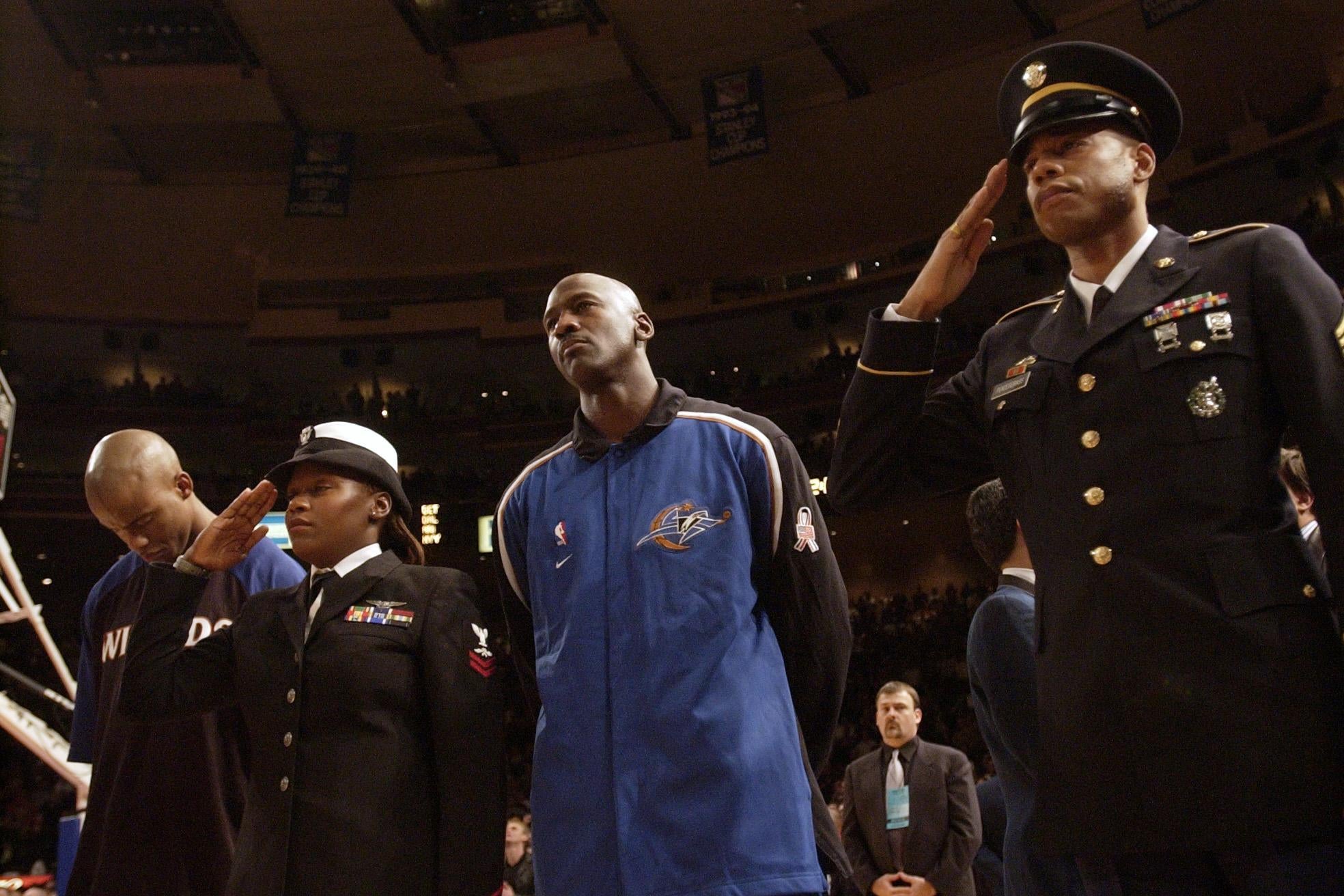This article is adapted from “The Last Last Dance,” a special episode of Hang Up and Listen about the final years of Michael Jordan’s NBA career.
Michael Jordan’s comeback was everyone’s top story on the morning of Sept. 11, 2001.
That changed at 8:46 a.m. eastern, when American Airlines Flight 11 crashed into the North Tower of the World Trade Center.
In the aftermath of the terrorist attacks, Jordan decided it wouldn’t be appropriate to announce his return to the NBA at a big news conference. And so, two weeks later, he released a simple statement through his management agency. The opening line: “I am returning as a player to the game I love.”
The 38-year-old Jordan signed a two-year contract with the Wizards with a $1 million starting salary—what the New York Times described as “the veteran minimum exception for a 10-year player.” Jordan pledged that entire salary to victims of terrorism.
“Although I am energized by my impending return to the court, I am deeply saddened by the recent tragic events and my heart goes out to the victims and their families,” Jordan said in his statement. “Out of deep respect for them, I will not participate in media interviews before the start of training camp.”
Jordan’s first game back came against the New York Knicks at Madison Square Garden on Oct. 30. A month and a half after 9/11, the attacks still loomed over everything in American life. The same night as the Wizards-Knicks opener, President George W. Bush threw out the first pitch of Game 3 of the World Series at Yankee Stadium. He threw that pitch while wearing a bulletproof vest.
Jordan, for his first part, rang the bell at the New York Stock Exchange the day before the game. He also visited Ground Zero. Asked what he would say to New Yorkers, the famously apolitical Jordan offered up, “I have no comment at this time.” The New York Post’s headline about His Airness’ visit to the city: “Jordan Has Zero Reaction.”
At Madison Square Garden, President Bush offered up a pre-recorded message, saying that “the American people are strong and we’re united. We love our freedom and we will prevail. We prove that every time we show up at an NBA game.”
New York Gov. George Pataki congratulated Jordan—“one of our great sports heroes”—on his comeback, to a mix of cheers and boos. He then thanked the “true heroes”—fire fighters, police officers, and emergency service workers—to raucous applause. When the public address announcer introduced the starting lineups, he interspersed the names of Knicks and Wizards players with those of members of the military. Jordan was announced in between an aviation storekeeper from the United States Navy and a sergeant from the U.S. Army.
It was quite a build-up, even by the standards of Michael Jordan and New York. The game didn’t live up to any of it.
Jordan missed his first shot, a pull-up jumper in transition. He made his second, a layup. His third was an airball. In the final seconds, with a chance to tie the game, Jordan threw the ball away. But then Washington stole it back. Jordan, wearing his trademark No. 23 on an unfamiliar dark blue jersey, had one last chance.
He missed an open look from 3, and that was that. The Washington Post’s Steve Wyche wrote, “With Madison Square Garden the stage and New York the backdrop, the leading man had everything in place to captivate. Everything but his A-game.” It was the first real sign that times had changed, that Jordan was no longer an untouchable champion.
Five games into his first comeback in 1995, Jordan had scored 55 points against the Knicks in Madison Square Garden—his famous “double nickel.” On this night, he finished with 19 on 7-for-21 shooting in a 93-91 Wizards loss.
Three weeks later, Jordan shot 8-for-26 in another defeat. That dropped the Wizards’ record to 2-9. Worst of all, Jordan’s body was breaking down.
Listen to the “The Last Last Dance” in full below, or subscribe to Slate’s sports podcast Hang Up and Listen on Apple Podcasts, Overcast, Spotify, Stitcher, Google Play, or wherever you get your podcasts.
